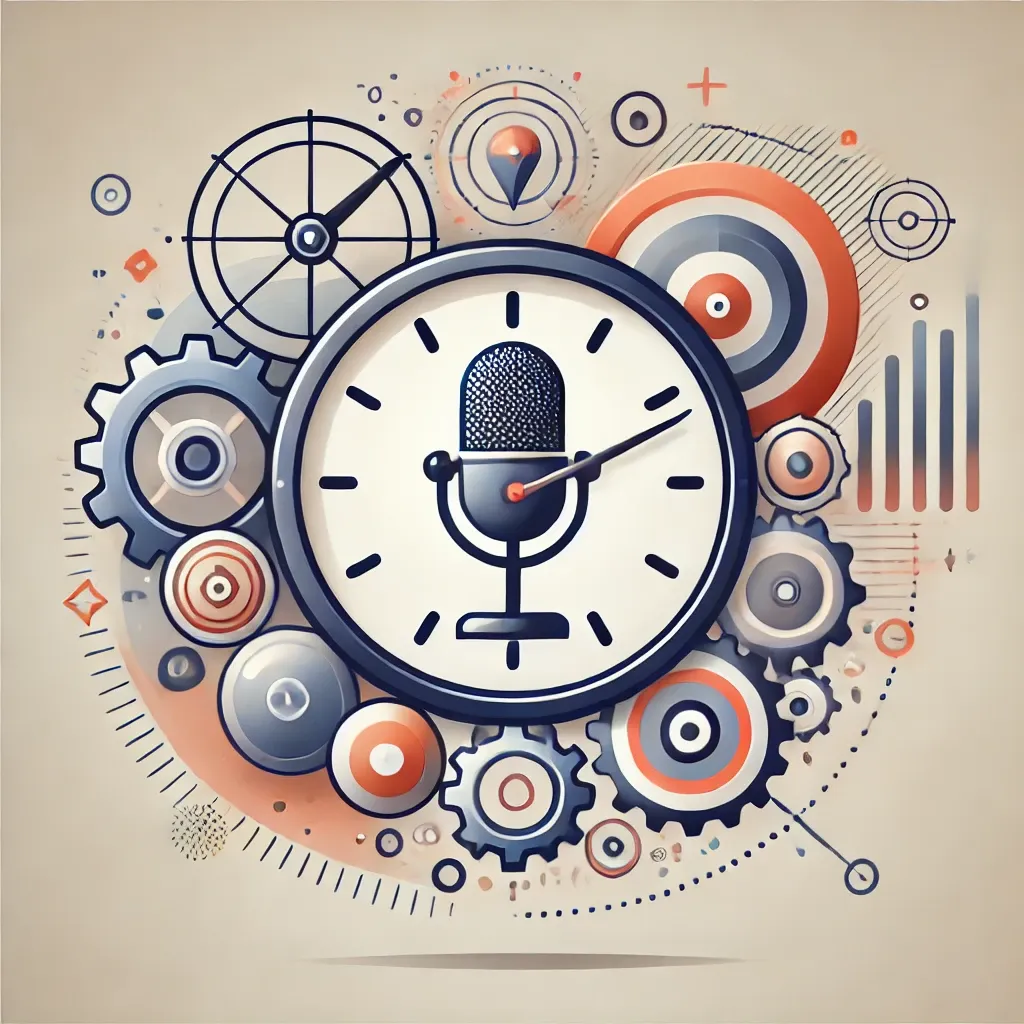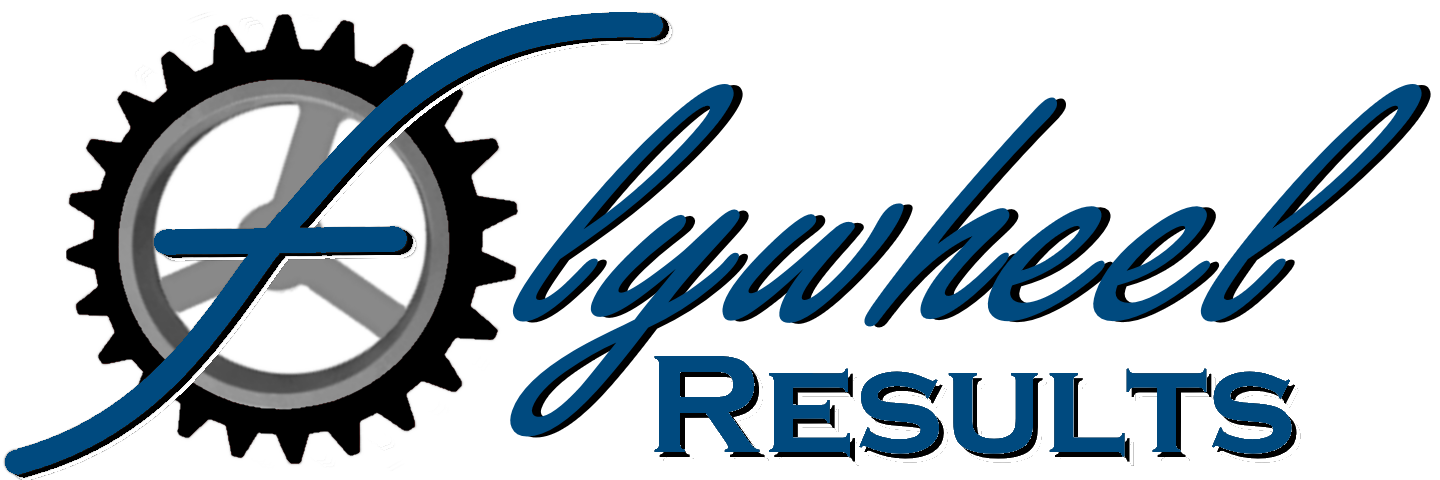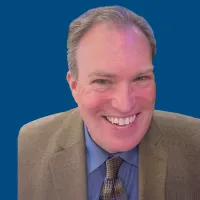Flywheel Thoughts
Latest Posts

You are not a Podcaster. You are a BRAND!
Stop Calling Yourself a Podcaster
Podcasting is what you do, not who you are.
So, who are you?
Whether you're a solopreneur, a few friends putting out episodes together, or a well-oiled enterprise podcast production machine – You Are A BRAND!
You are on the clock
Let’s use a clock analogy to describe what’s going on with most podcasts. Podcasters tend to think linearly. Step A is followed by Step B, which is followed by Step C.
Looking at a clock, High Noon is when the podcast episode drops. Before Noon, let’s say 11 o’clock is when the episode is recorded. From Noon to 1 o’clock is when you promote your latest episode on Instagram. For many hobbyists, that’s it.
And for a hobby, that’s fine.
For those looking to make a business out of their podcast – even a side-hustle – that’s not enough. Experienced producers know it’s a bit more involved than that 11 to 1 slice of the clock. There’s the work that goes into booking and screening the guests – a time-consuming task in and of itself. That’s probably the 10 o’clock hour. And there’s editing, transcription, corrections – that’s the real 1 o'clock hour. Then from 1 to 2 is the social posting. And all of this is done with one goal in mind. Downloads.
Why You Should Stop Calling Yourself a Podcaster
If you are calling yourself a podcaster, chances are you're thinking too small. And because you are thinking small, you've created a near impossible task for yourself.
If your only measure of success is by the number of downloads, you've set yourself a near impossible task. To get a significant number of downloads is not easy – not quickly, anyway. It’s generally accepted in the industry that the number of downloads needed to monetize your podcast is 1,000 downloads in a 30 day period.
Contrast that with an article on The Podcast Host dot com that says, “Statistically, if you get over 30 downloads for a new episode in the first week of its release, you’re in the top 50% of all podcasters.” They go on to say that if you get 115 downloads within the first seven days of release you in the top 25% of all podcasts. Extrapolated, that’s less than half-way to the 1,000 downloads needed per month to monetize.
That’s Ok. According to Thought Leaders dot I-O, “if you have 1,000 [downloads] per episode, you can make around $745 a month.” That’s not exactly retirement money. Obviously, money from downloads is not easy to come by. Not quickly, anyway.
For those of you new to podcasting, don’t worry. It gets better.
For those of you who already have downloads in the tens of thousands, stay with me. I think there’ll still be something in here for you too.
If you haven’t figured it out already, let me be perfectly clear:
For most, downloads are a poor measure of podcast success.
Rethink Your Measures of Success
What if, instead of using downloads, you set other benchmarks to measure success?
You’re probably thinking, “How could I? Podcasts are measured in downloads, and I'm a podcaster.” Right?
No! You are a brand!
Whether you are a solopreneur, a few friends putting out episodes together, or a well-oiled enterprise podcast producing machine, you are not podcasters! From this day forward, consider yourself a brand.
Podcasts are one of the many vehicles you use to spread brand awareness.
If not downloads, how should I be measuring success?
Let’s go back to the clock analogy…
If 1 to 2 o’clock is the social posting, leading up to the 3 o’clock hour is your website.
You might be thinking, “I run a podcast. Why do I need a website? All I really need is a RSS feed and a number of channels to distribute it.”
Remember, you are NOT a podcaster, you are a BRAND! And as a brand, why would you give up your brand awareness to Apple, or Spotify, or YouTube?
There are a number of detailed reasons for not doing so, but at the ten-thousand foot view, when people ask how they can find your show, you should point them to the real estate you own – your website. From there you can point to all the outlets where they can download your show – no searching, no clicking some other podcast instead, just direct access to you. Can you say the same if you directed someone to iTunes to find your podcast?
Like I said, there are so many other things that you can do with a website, and so much value you can create in other ways, but even a simple landing page with your own domain is a good start.
Visits to a website is another way to measure the success of your podcast.
And that brings me to another point – if you are going to have a successful podcast business you are going to need to invest in it. I’m not talking about a lot of money, you can probably get away with $100 per month – maybe even less – but if your podcast is a business, it needs investment.
If you are trying to do everything free this is not a business, this is a hobby. It's a fun hobby. and maybe you can make a business of it someday. But the process of turning a hobby into a business is a long slog. The only reason you would try to run a business this way is because it's the least expensive way of doing so.
If you want to keep it as a hobby, great! Keep it as a hobby. Stick to 10 and 2. But if you are not going to invest anything more than spare time, you should not expect much of anything in return.
That's kinda harsh, and I don't mean to be harsh. And I have no doubt that some can prove me wrong. To those of you who have bootstrapped everything, I commend you. I’ve bootstrapped a lot of my production too. Here’s the thing – and I think even those who have successfully bootstrapped will admit this too – a small investment – some tech here, hiring a specialist there – would have moved me ahead faster.
If it’s a hobby, speed is not an issue. If it’s a business, it matters.
I will say one more thing about podcasting as a hobby: You should set your expectations for what you are going to get out of this accordingly. And you should never start a podcast journey without first examining why you are doing it.
But I digress…
Next on the clock, you want to create a newsletter. Why? Because having an email list of people who are interested in the subject matter covered by your podcast is valuable.
The size of your email list is another way to measure the success of your podcast.
You know what’s interesting about these alternate measures of success? They also lead to alternate ways of monetizing your podcast. And really, isn’t revenue the ultimate measure of success of a business venture.
Rounding out the clock you will find things like:
Advertising and Sponsorship, Affiliate links, Subscriptions, Guesting and Targeting guests, and Merchandise – anything from tee shirts and swag to books and courses.
In fact, I wrote a blog 22 Ways to Monetize Your Podcast And 1 Way You Definitely Should Not. You can read it here: https://flywheelresults.com/22-Ways
What else can you do ?
Build for Branding
We mentioned advertising and sponsorship. As a podcaster, you probably thought, “I know how to do this.” But I want you to do this as a BRAND! What might that look like?
When you're building your episodes – show titles, seeking guests, creating prep questions, etc. - think about potential sponsors. You might want to work with them, but why would they want to work with you? If you can point to things like downloads and your email list, the number of website visitors, the size of your social following, etc. you become much more attractive to marketers.
Leverage Guests
Do you follow up with your guests? Do you provide them with simple social shares? They sent you their press kit before their appearance. You can do the same after. Send them a 30 second clip optimized for TikTok. Send them a 10-tweet thread optimized for X.
And follow up a few weeks later to send them notes like, “Hey, you had such a good time on the show, and we had such a good time hosting you. Do you have anyone that you could recommend coming on the show?”
There’s the pay-to-play model where you can charge guests for appearing. Conversely, do you have other products or services that you sell? You can use your podcasts to attract potential clients. What would look like? Imagine your ideal target profile for your product or service. Let’s say it’s Chief Marketing Officers at tech companies with 50 to 500 employees. There are thousands of people who fit that profile. Invite a few onto your show. No! Not to sell to them! But to learn from them. Ask them the questions you would want to ask prospects. Get their take on the industry. Have them explain the problems they face and the ways they’re solving them now.
Then take that information and incorporate it into your sales pitch to others. For example, when you are speaking with a similar prospect and they’re discussing the problem they’re facing you can say, “You know, I just heard Ms. CMO on a podcast talking about that very same problem. She had an interesting way of solving it…” That’s just one of many ways you can leverage having the right guests on your show.
More than a clock, it’s a FLYWHEEL!
By now you may be thinking, “Oh, my gosh! Am I overwhelmed!”
My intent was not to overwhelm you. My hope was two fold –
1. I wanted to present you with 2-3 ideas you could walk away with and implement immediately. And
2. I want you to stop thinking of yourself as a podcaster and start thinking of yourself as a brand!
And that clockwork framework? Think of it more like a flywheel.
Each episode you record is one lap around the clock. As you pass through each time, maybe you add to what you are doing. So today you cover 10 to 2. Maybe you work up to 9 to 3. And as you continue to spin round and round, you add more and more.
Now you’re not just spinning in a circle getting nowhere. Now you are creating a flywheel effect, getting faster and faster, better and better with each lap.

